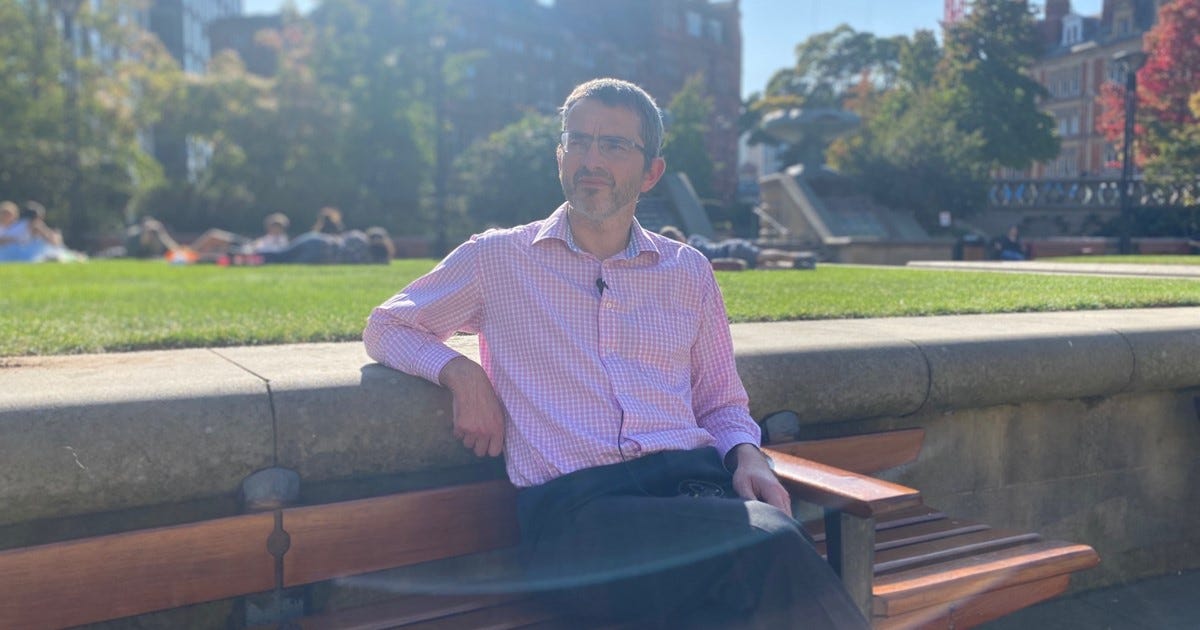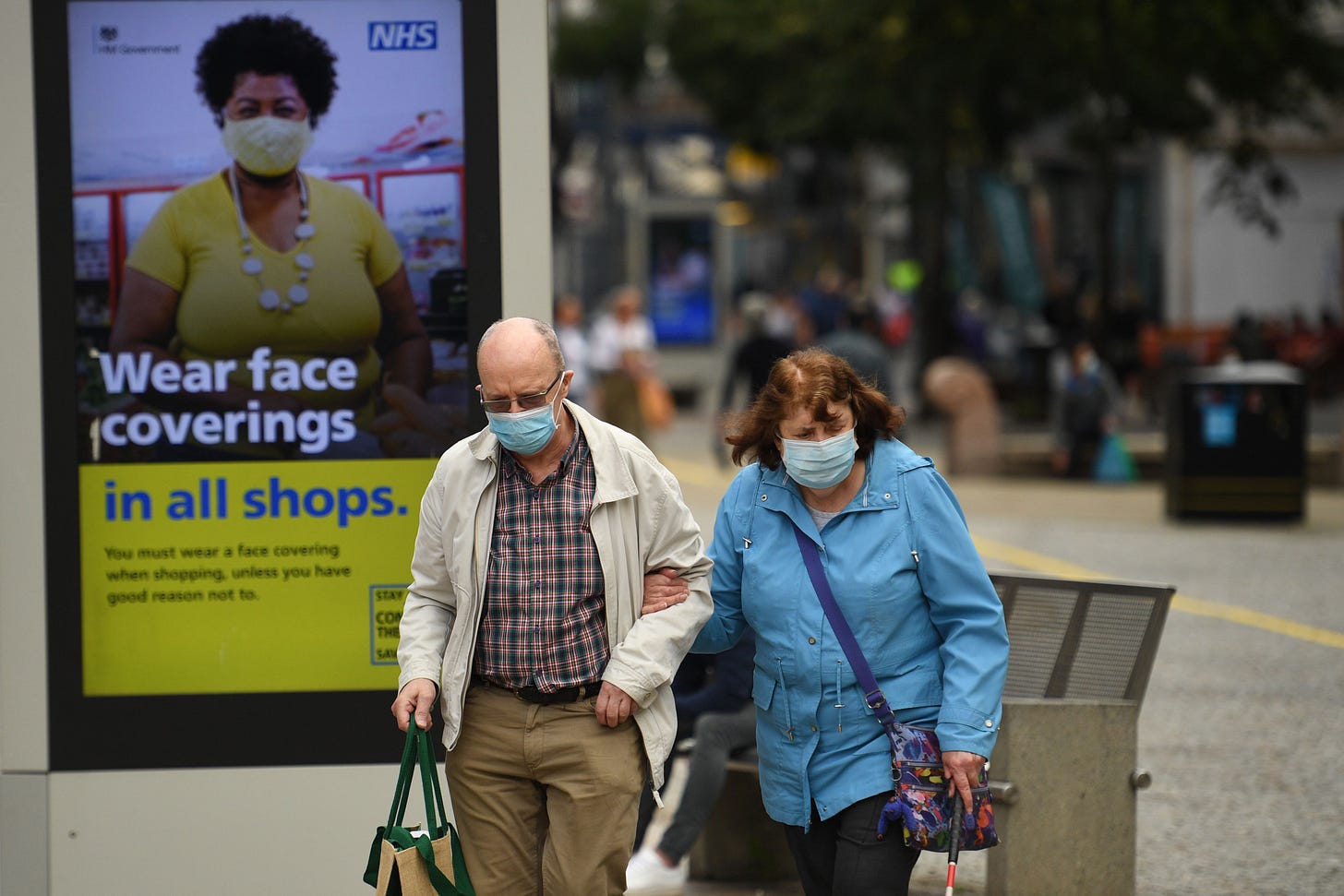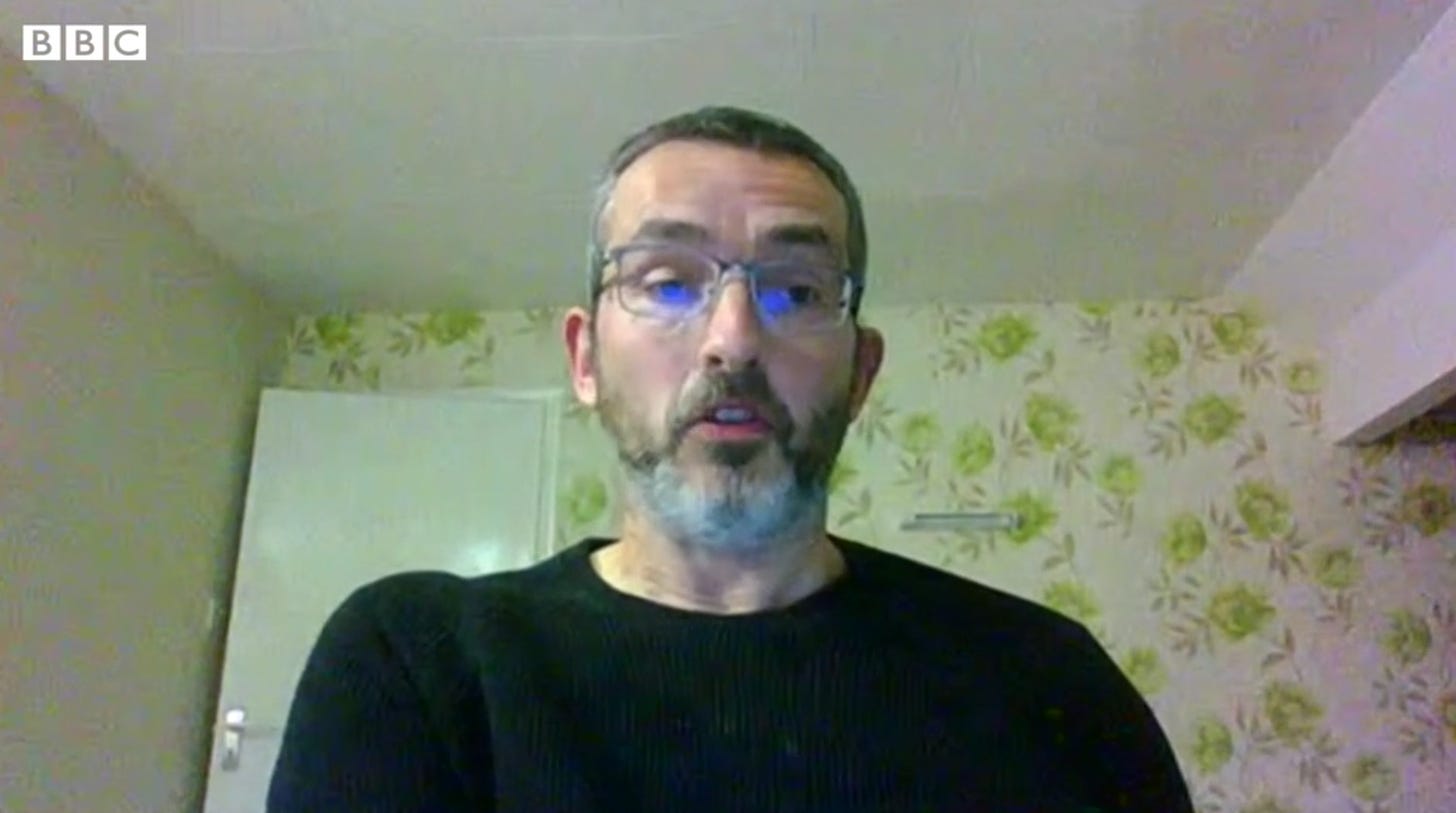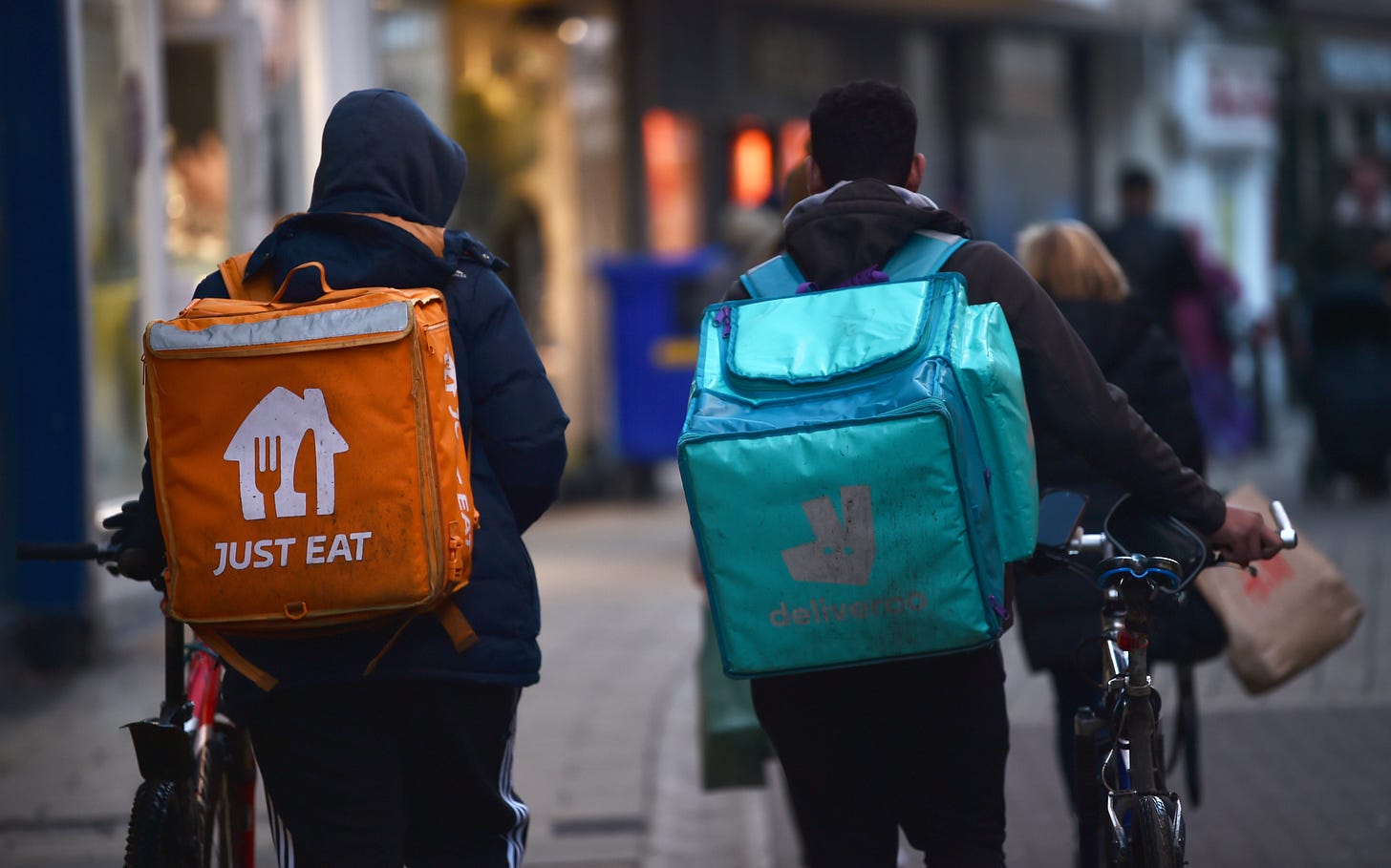Good afternoon members — and welcome to Thursday’s Tribune.
In today’s edition, we have a major interview with Sheffield’s director of public health Greg Fell two years on from the beginning of the Covid-19 pandemic. We also have a mini-briefing of news and recommendations and some great news about a new way readers can access our journalism.
Mini-briefing
Now Then report on the big news that the Greater Manchester Combined Authority has won a judicial review against two companies which will allow it to go ahead with bringing bus services under public control. The landmark decision could have major implications for similar plans in South Yorkshire but, as reporter Sam Gregory writes, activists are concerned that some leaders in the county have doubts about the plans.
A devastating crime story we covered almost a year ago has reached its conclusion in the courts. As you may remember, last April, 31-year-old Sheffield lawyer Khuram Javed was shot dead in Highfield — and now four men charged in connection with his murder have been found guilty. After the verdict, Mr Javed’s family issued a heartfelt tribute to the father-of-two who worked as a solicitor at London Road firm Alison Law.
An interesting piece in The Telegraph written by Robin Hughes of Hallamshire Historic Buildings argues claims that knocking down the former John Lewis building on Barker’s Pool is the most “environmentally friendly” option ought to be taken with a pinch of salt. After closely examining the council’s claims, Hughes says they are “out of step in even contemplating the demolition of a building as a serious option”.
BBC Radio 4’s Ramblings programme visits the Peak District to find out more about the fascinating life of countryside campaigner Ethel Haythornthwaite. Presenter Clare Balding walks from Redmires reservoir near Sheffield to Stanage Edge, taking in several of the national park’s 95 “Ethel peaks” that have recently been named after her. To read our piece from last June on her amazing life and legacy, click here.
Get The Tribune app
You can now read our stories on an app instead of email! If you have an iPhone, you just need to download the Substack Reader app, (Android users will have to wait), and log in to your Tribune account. You can select to get push notifications so you get our stories as soon as we publish if you want, and you can also read any other newsletters you follow on Substack. The app makes liking posts and leaving comments much easier too.
By Dan Hayes
Back in December 2019, during the period of history that will now forever be known as “before-Covid”, Sheffield’s director of public health Greg Fell was sent a note. A new respiratory virus had been discovered in the Chinese city of Wuhan which epidemiologists were concerned about. Still, among the dozens of bits of information that crossed his desk on a daily basis, it didn’t immediately cause alarm bells to ring. “Something you might need to keep an eye on,” the note read. “It’ll probably not amount to much.”
Over the next few weeks, more and more intelligence about this new coronavirus kept flooding into Sheffield’s public health team. By January, the virus had spread out of south-east Asia and was already on its way around the world. When a huge outbreak happened in Northern Italy in February, it was abundantly clear that this was the “big one” that experts had been worried about.
On the last day of February I meet up with Fell outside the Town Hall and head over to the Costa near the Peace Gardens for a coffee. A slim, obviously fit 50-year-old, he strides purposefully across the square in his shirt sleeves despite the hints of rain in the air. He lives in Leeds but has been Sheffield’s director of public health since 2016. A somewhat obscure figure before the pandemic, over the last two years residents have grown used to hanging on every word of his weekly Covid-19 “situation statements” on the council website.
The last time we met in person was on March 13, 2020. Crammed into his office high up in the Town Hall with a couple of other journalists, a cameraman and a photographer, it was a moment fraught with tension. At the time just three people in Sheffield had acquired Covid through community transmission, but he’d invited us there to get the message out that there was going to be a lot more. I was still working for the Star, and the headline on the piece I wrote afterwards said “Coronavirus epidemic cannot be stopped”.
Dangers like terrorism or “acts of God” like natural disasters tend to loom largest in the public imagination, but new diseases have been at the top of the National Risk Register for many years. Pandemics caused by novel viruses are inevitable but so many of the variables are uncertain that it’s incredibly difficult to prepare for them before they happen.
When Covid arrived the playbook that policymakers got off the shelf was the national pandemic flu plan. “Everyone thought it would be flu,” says Fell. “But Covid was significantly more transmissible and we’ve never been quick enough.” It wasn't until the Prime Minister addressed the nation on March 23 that local authorities were even given the legal authority to impose a lockdown. Fell says that by then it was already probably two or three weeks too late. “But that’s a question for an inquiry,” he adds.
I’m interested to know what that time felt like for Fell and his team. Appropriately enough in his answer he draws on a military analogy. During Vietnam, US Secretary of Defence Robert McNamara used the term “the fog of war” to describe the uncertainty in situational awareness experienced by participants in military operations. Fell says that trying to understand the disease and our response to it — both of which were constantly changing in unpredictable ways — made agreeing and communicating decisions incredibly difficult.
Was he scared at any point, I ask. “Yes, frequently,” he admits. These fears came from the fact he was responsible for something that was largely out of his control and from knowing that lots of people would die. How did he deal with it? “All you can do is change the course of events the best you can,” he tells me. “I wish you could stop it but you can’t.”
Directors of public health are independent advocates for the health of their area. They are responsible for briefing both councillors and council officers but also play an important role in informing the public about the health threats they face. They sometimes have medical backgrounds but can also, as in Fell’s case, be public health specialists. In Sheffield, there is a core team of 25 but this has been substantially expanded over the last two years.
Most of the time, they are relatively anonymous figures, but the pandemic has made them extraordinarily visible. The spare room of Fell’s Leeds home, with its green flowery wallpaper, has become a familiar sight on television. He tells me that at the height of the pandemic the media requests became so incessant that he turned down Channel 4 news, Radio 4’s Today programme, BBC Newsnight and ITV News at 10 in one 24-hour period.
While he might not have liked all the media attention, his role as Sheffield’s “chief communicator” on Covid (a kind of local version of chief medical officer Chris Whitty) is one that he is well suited to. It’s very clear he is across all the detail of his brief and equally importantly can readily communicate it to those, like me, who lack his scientific literacy. But it also meant that on the few occasions he diverted from the government line it put him in an uncomfortable position. He found himself in that situation a couple of times during the entire crisis, once at the end of the first lockdown over the reopening of schools and once over the widespread rollout of lateral flow tests. He describes each one as “a bit nerve-wracking”.
It would have been surprising if doubts hadn’t crept in from time to time. In October 2020 he wrote on Twitter that he’d had “a wobble” but had been reassured by some words of encouraging advice from a former boss. When I ask why the wobble happened he can't remember but he thinks it was probably the sheer relentlessness of his role at that time. “There’s is a bit of it which is if you fuck up people will die and that’s not good under any circumstances,” he explains.

Fell is a prolific Tweeter and over the last two years his feed has become essential reading. As well as talking about the stuff that has helped keep him sane (running, cycling and Metallica), one of his perennial topics is how Covid has shone a light on the inequalities of Sheffield. In a lecture he gave last year he talked about the Cholera Monument in Norfolk Park, which marks the site of a mass grave for 339 people who died in the epidemic of 1832. At the monument the Master Cutler is given his own memorial while all the others are lumped in on the same plaque.
Like cholera in the 1830s, Covid’s impact has been unequally spread across the city. While there have been some so-called “Covidiots”, most infections have had very little to do with people not obeying the rules. By and large the people who have become ill are those who had to go to work while those of us who could work from home were left largely unscathed by Covid. People on low wages or those without contracts or decent sick pay became ill while those in professional occupations moaned about Zoom meetings. It’s these underlying structures in Sheffield that have meant far more people in the poorer east of the city died from Covid than in the more prosperous west.
“Poverty is arguably the preeminent cause of poor health so how can we as a city reduce income inequality between the haves and the have nots?” he asks. “It’s easy to say but bloody hard to do.” He hopes the government’s much-vaunted “Levelling Up” agenda will help address this but doesn't sound convinced.
At the end of our conversation, I remark that a lot has changed in the two years since I last saw him (I say I’m a good half a stone heavier than I used to be. He kindly makes me feel a bit better about this by saying he drinks more than he used to). These are just two small examples of Covid’s huge impact which, when played out across a city of 600,000 people, mean the knock-on effects of the pandemic will be felt for years.
He says lots of services like sexual health and drug and alcohol services did continue but acknowledges that the pandemic has changed things so completely that many of his other responsibilities will need to be reassessed for the post-Covid world. “All of that we will need to work out over the next few months,” he says. “The next few years will need to be about recovery from, hopefully, the worst event of our lifetimes.”
But amidst all the pain and upheaval of the last two years, he is “incredibly proud” of his team and of the city of Sheffield for the way it has come together during Covid to protect the most vulnerable. “I will look back and think I did my best as did my team and they deserve huge credit,” he tells me. “The collective actions of a lot of people have saved lives that we will never be able to know about or count.”







Greg Fell has impressed me by the eloquent yet perfectly pitched communications he has put out during the height of the pandemic -Sheffield has been fortunate to have him at the helm at this moment in time.As for the inequalities in Sheffield and their effect on individuals health - well Sheffield's Labour MP's raise this issue on a regular basis but nothing changes-its the same message put out in Private Eye by MD. Sometimes people need to educate themselves and make their own choices ie cease smoking.An inteview by a very human being and one who deserves a civic accolade.Thank you Mr Fell and Sheffield Tribune.
We all owe a debt of thanks to Greg Fell he has been brilliant throughout the pandemic. Excellent article.